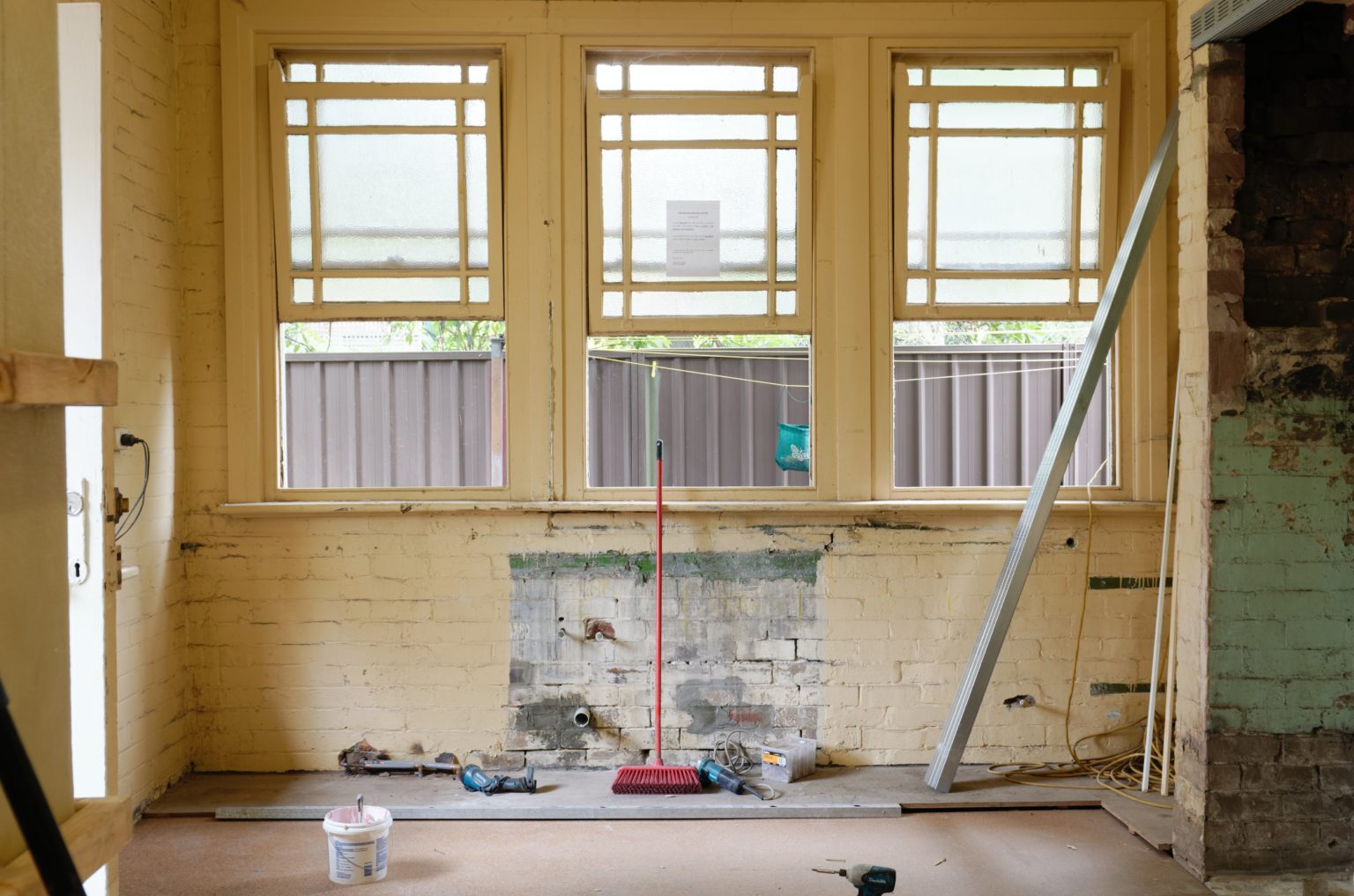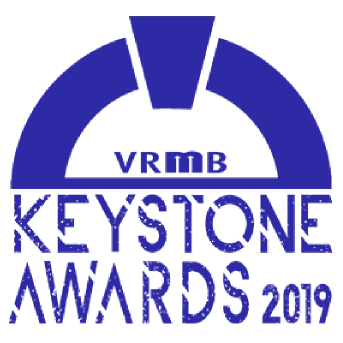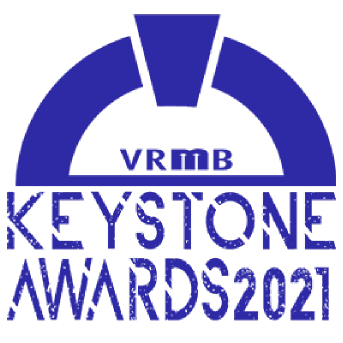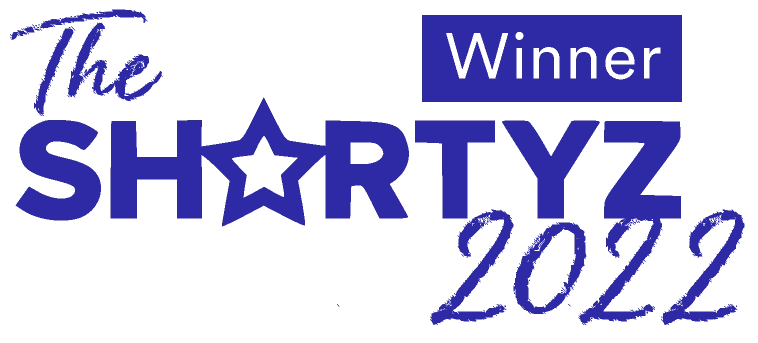Despite the short-term rental industry’s remarkable recovery after the lows of 2020, the vacation rental labor shortage situation is continuing to bite.
Research by the World Travel & Tourism Council (WTTC)* found that in 2022, around 480,000 travel and tourism jobs would remain unfilled. That’s more than 1 in every 13 jobs. This “put the recovery of the sector in serious jeopardy” in 2022 and beyond.
It’s clear: From The Great Resignation to a spike in remote workers, and more listings on the market than ever before, it’s becoming even more challenging for vacation rental hosts and business owners to hire and retain great workers.
To help, we’ve looked at:
- What caused the vacation rental labor shortage
- How the shortage affects you, including when it comes to finding new staff and training
- 7 ways to help your vacation rental business survive and thrive during the shortage
*Stats from the WTTC, July 2022
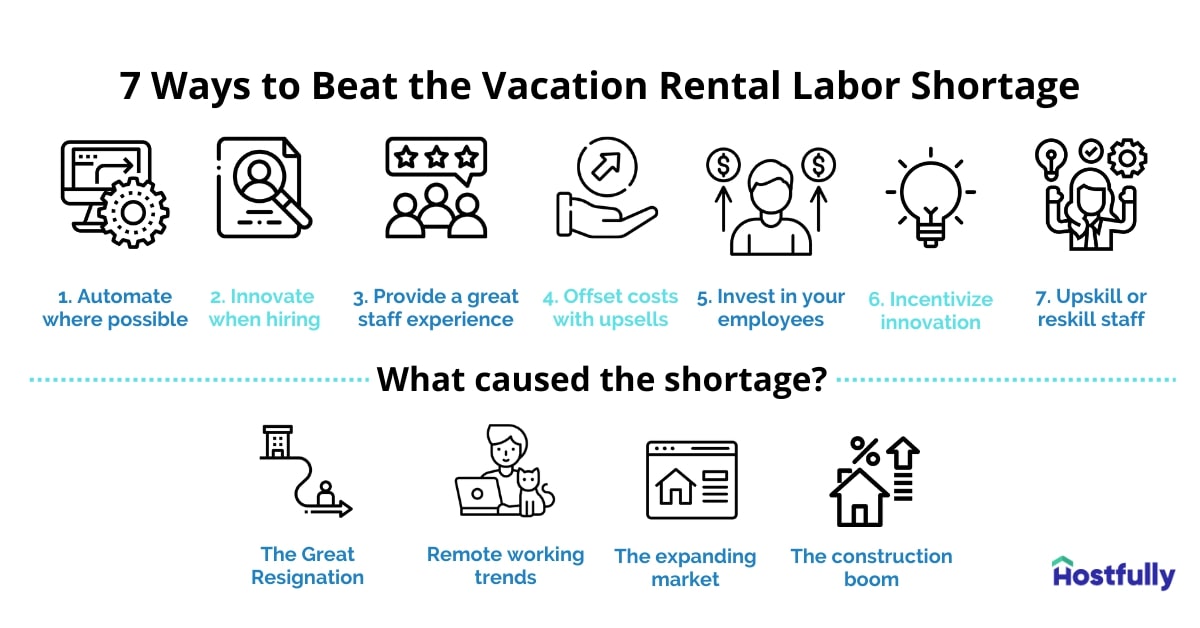
What caused the vacation rental labor shortage?
The Great Resignation

Source: Pexels / RasaBRomeo
“The Great Resignation”, as it’s become known, has impacted the vacation rental labor market just as much, if not more, than other industries.
The US Bureau of Labor Statistics (BLS) estimated that in 2021, more than four million people left their jobs every month. Overall, well over 40 million people left by mid-2021, up from 36.3 million for the whole of 2020.
The US Travel Association also stated in 2022 that “a lack of available workers…is restricting leisure and hospitality’s recovery” post-pandemic.
Remote working trends

Source: Pexels / Samer Daboul
Post-pandemic, many more people started working remotely, especially if they were let go of their in-person jobs during the crisis.
A study by workforce consultancy MBO Partners found that the number of US digital nomads (people who travel while working) increased by 112% from 2019 to 2012, from 7.3 million to 15.5 million.
More opportunities for remote working opened up after so many could not work in person. Significant numbers did not return after the crisis receded, and preferred to seek out remote positions.
In fact, the jobs board Indeed told the BBC in 2022: “If we look at the US overall, searches for remote work have gone up four-and-a-half times as a share of all searches since 2019.”
This has led to fewer people being available or willing to work in fixed-location jobs, including in hospitality.
Expanding market
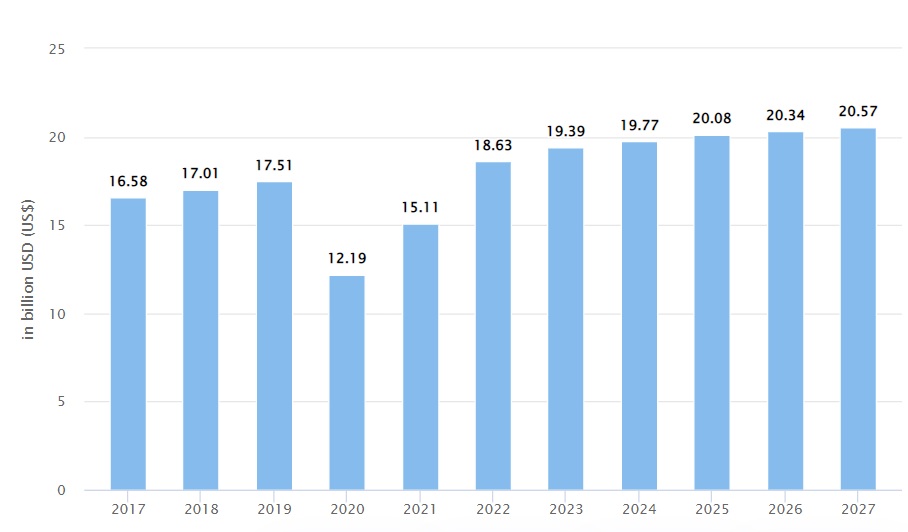
Source: Statista.com
The short-term rental market has boomed since Covid, making it more difficult to find enough employees to staff them all. This is partly due to cheap credit in response to the crisis.
While the travel market was undeniably impacted during the pandemic, it has done much more than simply “recover”.
Research by Statista found that revenue for the US vacation rental industry is expected to hit more than $20 billion by 2027. This is up from £13.3 billion in 2021. The same report shows that revenue in 2021 and last year (2022) outstripped that seen in 2019 and 2019 by more than a third.
Yet, a travel industry analyst told the Washington Post in April 2022 that “the bubble had burst” on travel and hotel accommodation recovery. Not because [the industry wasn’t] anticipating it, he said, “but because they were unable to hire enough people.”
Construction boom
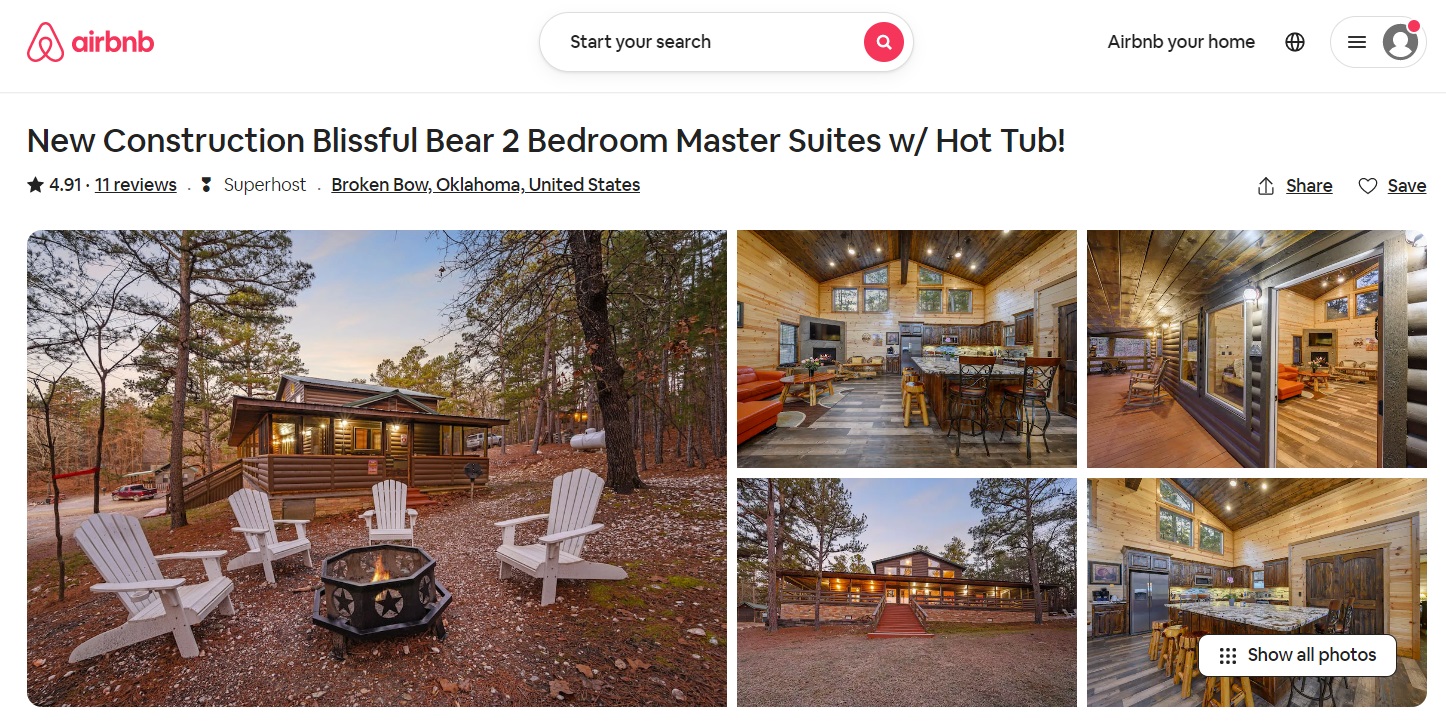
Source: Airbnb.com
After construction was forced to pause during the pandemic, the re-opening of society led to a boom. People sought to catch up on the backlog. Construction soared, and the number of people purchasing homes for short-term rentals skyrocketed, reported TIME magazine.
The increase in available properties in the US had soared by 23.2% year-on-year to 1.38 million listings by August 2022, according to rental stats company AirDNA.
With more properties being built and more being put on the short-term rental market, finding contractors and staff for vacation rentals has become more challenging than ever. This is especially true for maintenance staff with crossover skills in the construction industry. With skilled labor wages skyrocketing, many maintenance workers have switched industries, putting even more pressure on the short-term rental market.
How does the labor shortage in vacation rentals affect you?
The biggest challenges of the vacation rental labor shortages are:
- Finding new staff
- Limiting turnover and training staff
Finding new staff
With fewer staff looking to work in hospitality and travel, it’s a major challenge to find people.
US Bureau of Labor Statistics figures show that in March 2022, for example, there were 112,000 new jobs added in the hospitality sector, but that employment was down 8.7% in the industry since February 2020.
Similarly, with staff in high demand, employers have less choice and leverage over conditions and pay.
Of course, you want to pay staff properly and make your position attractive. But with increased demand, employees have a wider choice of which job to choose and the pay level they will or won’t accept.
Turnover and training
Onboarding and training new staff are some of the biggest costs associated with recruitment.
A study by jobs board Glassdoor found that it cost an average of $4,000 and 24 days to hire a new worker. This included the fees to advertise, the time spent sorting through resumes and interviewing, and the hours it takes to train new workers.
Location
The impact on your vacation rental business depends heavily on your location. Not all markets have been affected in the same way.
Very large and competitive markets with a strong vacation rental industry and a lot of labor availability—such as Miami, FL—haven’t been affected as much.
In contrast, some cities were disproportionately affected. This is especially true as rural properties saw a major surge in popularity in comparison to previously-busy urban centers.
7 ways to survive and thrive during a vacation rental labor shortage
1. Automate wherever possible
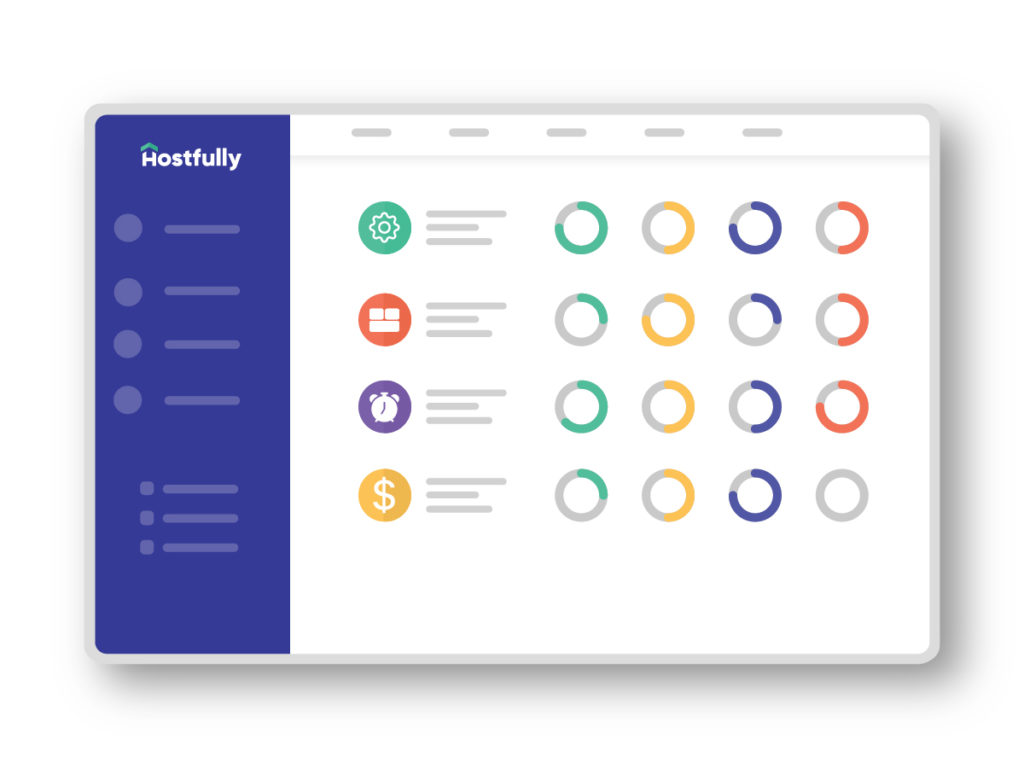
Source: Hostfully.com
Automating tasks and operations in your business is hands down the most effective way to remain competitive and thrive despite a lack of staff.
Automation effectively enables you to “outsource” to technology, rather than expensive people. It can also grow with you as you scale your STR business.
For example:
| Without tech automation / relying on new hires | With automation | |
| Giving guests access on check-in |
|
|
| Asking guests for a review and leaving a review for them |
|
|
| Offering upsells and taking payments |
|
|
Other ways that automation can help save on time, hassle, and the need to hire more people include:
- Automated cleaning with pre-written messages sent automatically to cleaners when guests check out. Time saved on manual messages and waiting around for guests to leave.
- Automated Booking Pipeline. Hostfully’s tool makes it easy to follow up with guests automatically and send them quotes and messages when needed. Save time and hassle.
- Channel management. Distribute your properties across multiple pages to increase reach and bookings, without having to hire someone to manage each one manually.
- Dynamic pricing. Remove the need to hire a revenue manager with a dynamic pricing tool that integrates with your PMS.
- Unified inbox. Platforms like Hostfully bring together all inquiries and messages from across different channels in a single place. No need to hire a separate person to manage multiple overflowing inboxes or online travel agency (OTA) app messaging.
- Security. Implement digital ID checks and background verification, removing the need for a receptionist or back-office staff member to run guest screening.
- Direct booking website. Use your PMS and digital tools to set up a dedicated site to take direct bookings. No more need to hire people to pick up the phone to take direct reservations.
- Central calendar. Save time and money on hiring a manager to keep track of your calendar. Sync all bookings from across multiple platforms in one single, digital place on your PMS.
2. Innovate when hiring
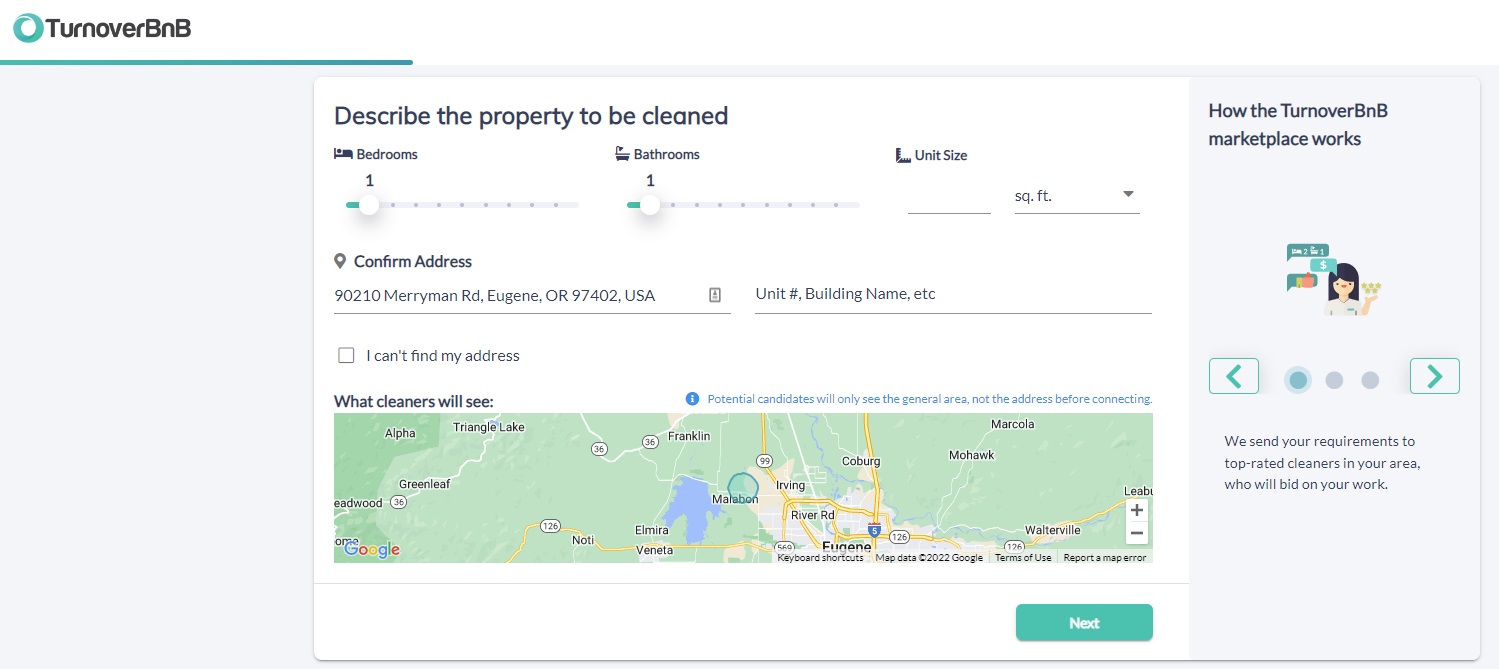
Source: TurnoverBnB.com
Think outside of the box when it comes to hiring. You may be used to finding staff in a certain way (such as a particular recruitment website). But the shortage may mean you need to look elsewhere.
Some apps include hiring staff and finding good workers as part of their service. For example, vacation rental cleaning app TurnoverBnB, which integrates with Hostfully, lets you find and communicate with specialist cleaners. by location and other factors (such as property size).
You could also look to hire people with less existing experience, but who are ready to learn fast. This might mean hiring recent high school or college graduates, and training them to the standard you need.
Using technology like Hostfully streamlines and simplifies vacation rental operations, to make it easier for new hires to learn your key processes. For example, messaging templates help you write scheduled messages, and its mobile app makes it easy to manage on the go.
3. Provide a great staff experience
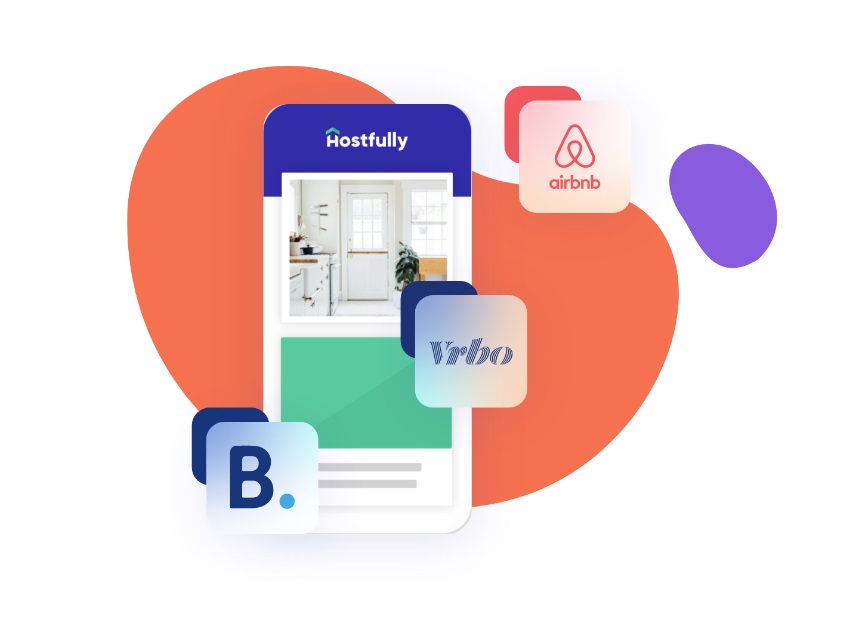
Source: Hostfully.com
Providing a great staff experience is key to finding and keeping good workers. Making your company a great place to work (even if it’s only small) is central to this.
With many attributing The Great Resignation as a symptom of worker burnout and depression, taking care of your staff is more important than ever (a 2021 Harvard Business Review study found that 89% of workers said their work life was getting worse).
We recommend you:
- Pay competitively. They say if you want monkeys, pay peanuts. Of course, you can only pay what you can afford, but be sure to remunerate well if you want good results.
- Be clear. Set definite boundaries on exactly what you expect from staff and what their responsibilities are. This will reassure them and make their work more straightforward.
- Say thanks. Acknowledging people for their work and positive abilities goes a long way to keeping staff engaged and loyal.
- Enable flexibility. In a world where more staff are reporting burnout and a lack of work-life balance, offering flexibility when it comes to hours and working time is key.
- Check in regularly. See how staff are doing and ask for their ideas. This will boost loyalty and show that you respect and trust them.
- Offer training, perks, and treats (see point 5 below). Keep staff engaged and challenged.
Hostfully’s tools can help you communicate better with staff, and give them more autonomy via automatically assigned tasks and automated smart lock access codes.
4. Create additional revenue streams to offset higher labor costs
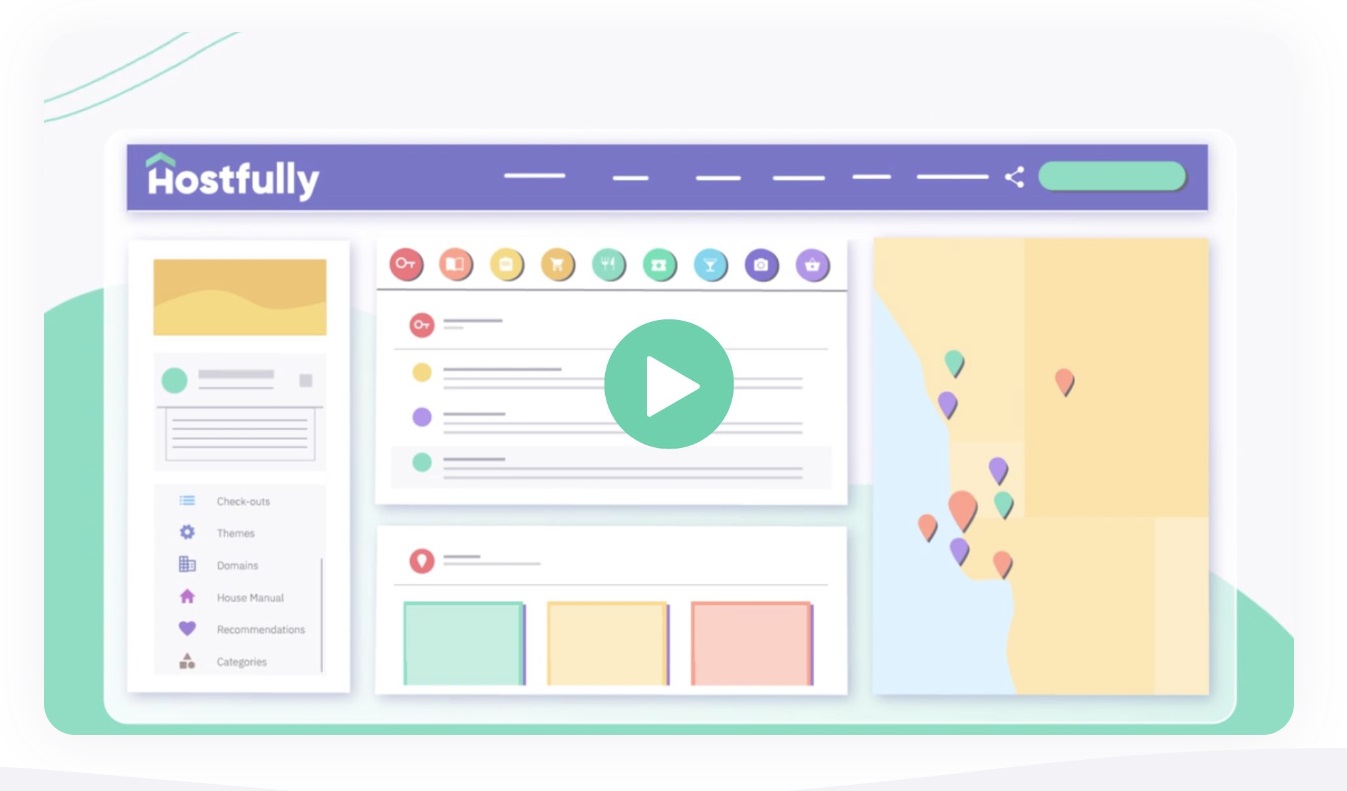
Source: Hostfully.com
If your short-term rental business is expanding, you may find that hiring extra staff is unavoidable. But you can offset this necessary cost with upsells.
Upsells are paid extras that you offer guests during their stay to improve their experience. You can offer these as optional to guests, and take a cut of any purchases.
For example, Hostfully integrates with its Guidebooks tool, to showcase services like:
- Early check-in or late check-out
- Mid-stay cleaning
- Luggage storage
- Baby or sports equipment hire
- Grocery delivery
- Day trips and experiences with local businesses
- Taxi hire or airport transfers
These let you make more money per booking (and please guests), without putting up your rates.
5. Invest in your employees

Source: Unsplash.com / Brooke Cagle
Investing in your employees is another way to encourage them to stay loyal. This will reduce the cost, hassle, and time of finding new hires.
Help employees see a career path with you. You might pay for them to take training courses or relevant qualifications. This will help them stay challenged and engaged, and improve their work too.
You could even offer them perks and other benefits. Even if you’re a small company on a tight budget and can’t stretch to big bonuses or private medical insurance, you could still offer treats.
For example, give them a day off on their birthday, an online gift voucher for a particularly great month of work, or offer discounts on stays in your rentals during quiet periods.
6. Incentivize employees to innovate

Source: Pexels / Mart Production
Employees don’t always have to be a drain on resources: They can become allies in helping you reduce costs and maximize your vacation rental income.
As they are the ones “on the ground” (e.g. cleaning, repairing amenities, coordinating check-ins), they may have solutions to improve efficiency that you wouldn’t have thought of alone.
Ask for and be receptive to their ideas, and check in with them regularly to see if they have any suggestions. You could share perks and rewards for employees who suggest the best or most ideas.
Getting them to own new ideas and implement them will also help boost engagement, confidence, and loyalty.
7. Upskill or reskill your staff
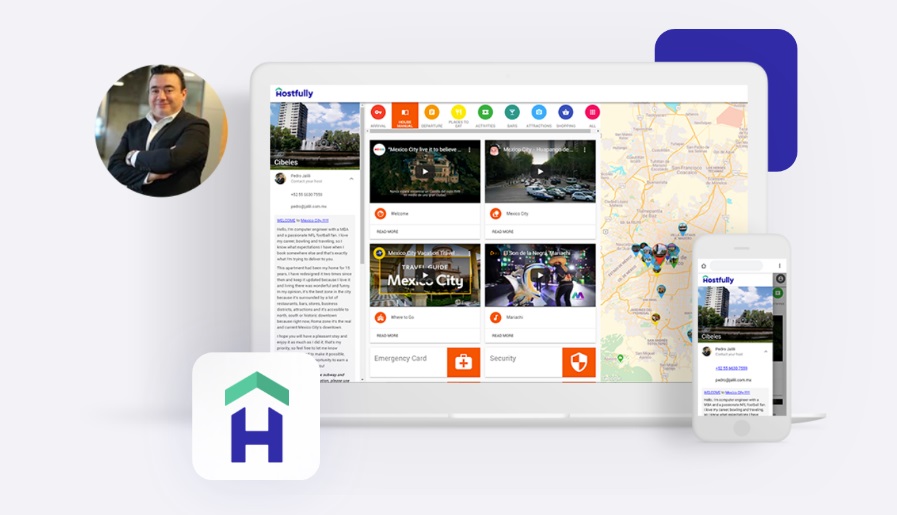
Source: Hostfully.com
Expanding or changing the way your business works doesn’t always mean you need to hire a completely new team. Existing workers or assistants may be interested in new responsibilities or skills that they can train in, and learn the new skills necessary.
This means helping them to take on new tasks, train in new skills, shadow other staff members, or add more responsibility to their role.
Don’t overstretch them or expect them to do the work of three people. But you can empower them to learn more skills so they are continually improving. This will boost their productivity and reduce your need to hire new people.
Labor shortages in the vacation rental industry: Beat them by automating and simplifying using tech
Despite a thriving industry post-pandemic, a shortage of labor is continuing to bite.
Increased resignations, burnout among workers, and more remote positions mean that hiring and retaining good employees within the tourism and hospitality industry has become more challenging.
Technology is a major solution. Platforms like Hostfully let you automate and simplify many core operations, including manual messaging, cleaning coordination, and digital smart lock access.
This reduces your reliance on extra staff and makes it easier to run your business without needing to hire many more people.
So you can increase your efficiency, simplify your business, and beat the staff shortage too.

